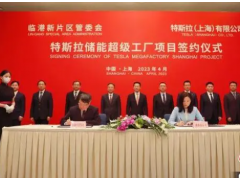From June 25th to 30th, New Zealand Prime Minister Hipkins paid an official visit to China and attended the 14th Summer Davos Forum held in Tianjin.
This is Hipkins' first visit to China after taking office as Prime Minister of New Zealand in January this year, which has attracted widespread attention. Foreign media have pointed out that Hipkins' visit will provide an important opportunity for the in-depth development of New Zealand-China relations.
There are many "firsts" in the economic and trade relations between China and New Zealand.
In April 2008, China and New Zealand signed a free trade agreement, and New Zealand became the first developed country to reach a bilateral free trade agreement with China.
In April 2017, the two sides held the first round of negotiations on upgrading the China-New Zealand Free Trade Agreement, and New Zealand became the first western developed country to start negotiations on upgrading the Free Trade Agreement with China.
In January 2021, China and New Zealand signed a protocol to upgrade the bilateral free trade agreement, which will take effect in April 2022.
Before his visit to China, New Zealand Prime Minister Hipkins mentioned that in recent years, with the support of the upgraded version of the China-New Zealand Free Trade Agreement, the trade relationship between the two countries has proved to be "incredibly resilient".
Tian Jingling, an associate researcher at the China Institute of Contemporary International Relations, pointed out in an interview with China Central Radio and Television Global News that the "resilience" in China-New Zealand economic and trade relations has been fully demonstrated in the context of global economic pressure:
Affected by the new crown epidemic, the overall recovery of the world economy is sluggish. The conflict between Russia and Ukraine has had a great impact on the global economy, and the economies of all countries are under pressure.
The economic and trade relations between China and New Zealand have maintained a relatively good state, and some outstanding progress has been made, such as the upgrade of the free trade agreement. It is this kind of "resilience" that has allowed China and New Zealand to form a win-win situation of cooperation, and has also laid the foundation for cooperation in more fields.
In March 2017, China and New Zealand signed a memorandum of cooperation on strengthening the "Belt and Road" initiative, making New Zealand the first western developed country to sign a similar cooperation document with China.
In this regard, Chen Hong, director of the New Zealand Research Center of East China Normal University, pointed out in an interview with a reporter from Global News Broadcasting that New Zealand is actively cooperating with China under the framework of the "Belt and Road" initiative, focusing on the country's long-term interests and development needs. The cooperation between them has also been raised to a higher level due to the "Belt and Road" initiative:
In the process of signing the "Belt and Road" cooperation document with China, New Zealand also received pressure from the United States and Australia. But New Zealand withstood the pressure and considered the long-term interests of its own country, which is commendable.
"One Belt, One Road" has brought great confidence to New Zealand. Although New Zealand is a developed country in the West, it is also an island country and its infrastructure needs to be improved urgently. Therefore, there is huge room for cooperation between China and New Zealand in the field of infrastructure construction.
"Belt and Road" cooperation can also bring benefits to the green economy. New Zealand is heavily dependent on fossil fuels, while China has very mature photovoltaic and wind power industries. The "Belt and Road" cooperation can bring huge benefits to both parties.
China and New Zealand have gradually strengthened cultural exchanges. China has established Confucius Institutes at the University of Auckland and Victoria University of Wellington in New Zealand, which has brought vitality to mutual understanding, mutual trust, and further strengthening of non-governmental exchanges.
based on the achievements and foundation of the current economic and trade relations, one of the main goals set by New Zealand Prime Minister Hipkins for this visit is to "diversify" bilateral trade products and promote the "transformation and upgrading" of economic cooperation .
In this regard, Tian Jingling, an associate researcher at the China Institute of Contemporary International Relations, believes that the entry into force of the upgraded version of the free trade agreement between China and New Zealand, and the entry into force of the "Regional Comprehensive Economic Partnership Agreement" (RCEP) for China and New Zealand, is a great opportunity for the two countries. The foundation has been laid for further diversification of economic and trade cooperation:
After the upgraded version of the free trade agreement came into effect, in the field of trade in goods, New Zealand has implemented zero tariffs on 100% of products imported from China, and China has implemented zero tariffs on 97% of products imported from New Zealand.
In terms of trade in services, on the basis of RCEP, China has expanded its opening up to New Zealand in many fields such as aviation education and financial pensions.
This is an institutional guarantee for the development and diversification of China-New Zealand economic and trade, and will definitely become a new driving force for the development of both sides.




